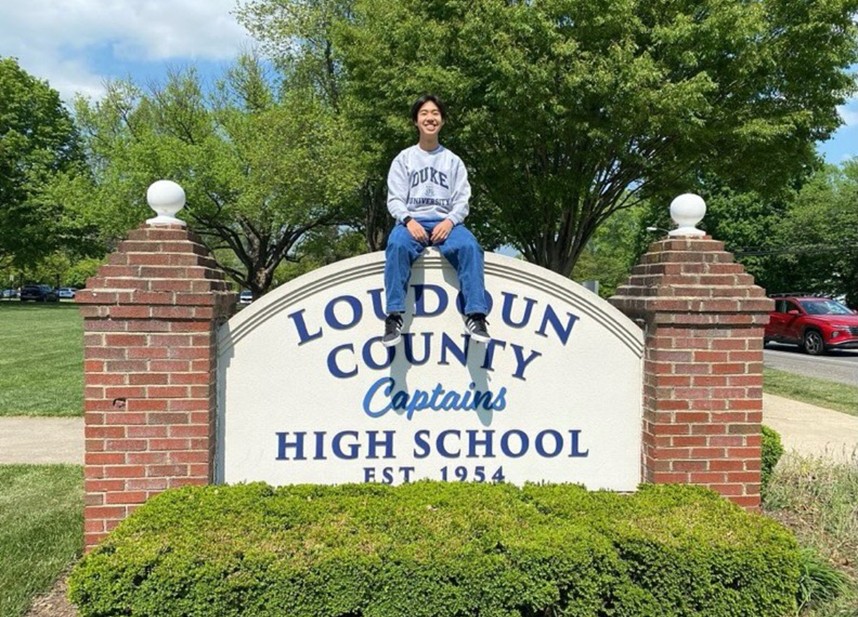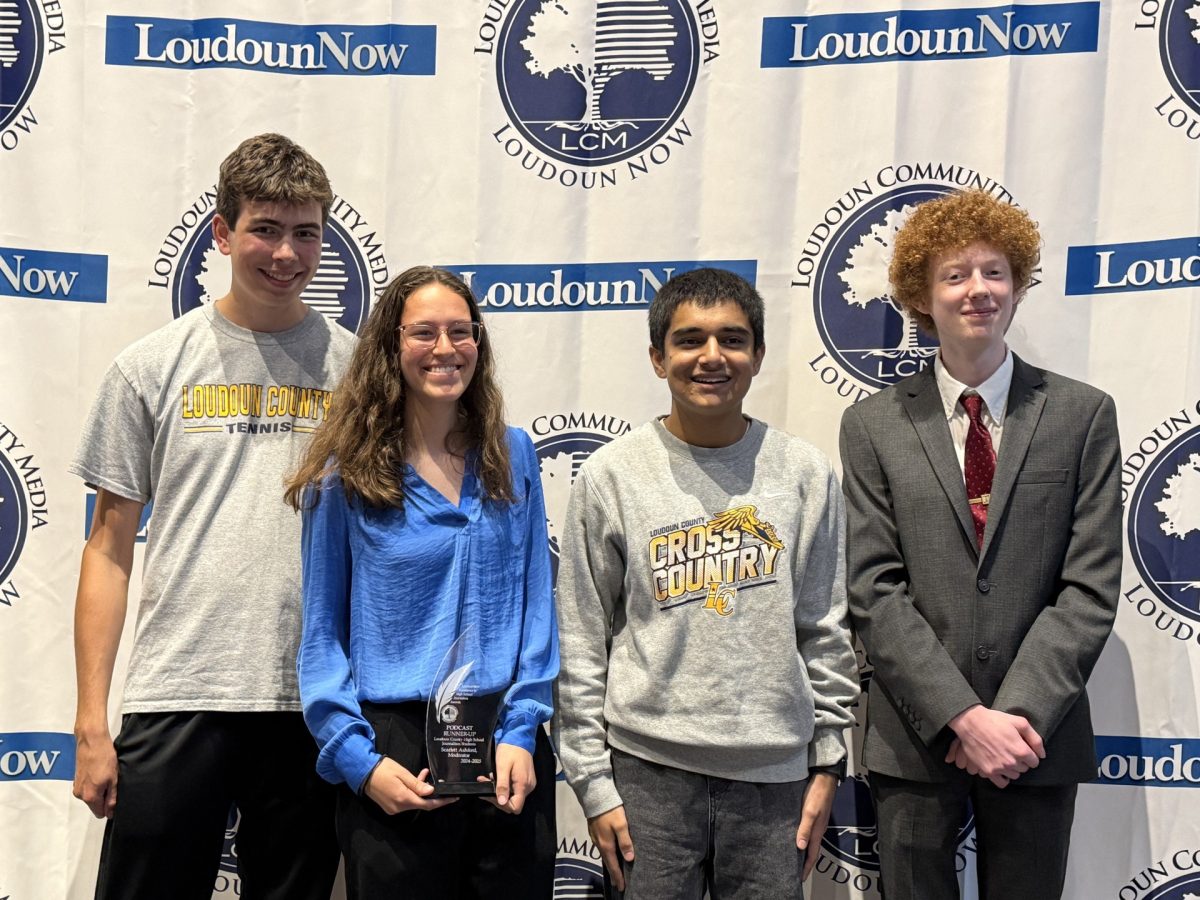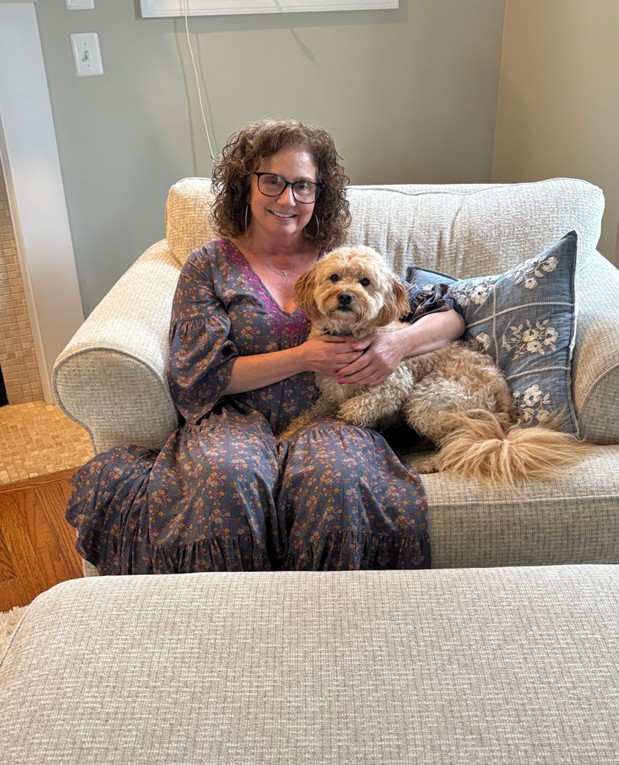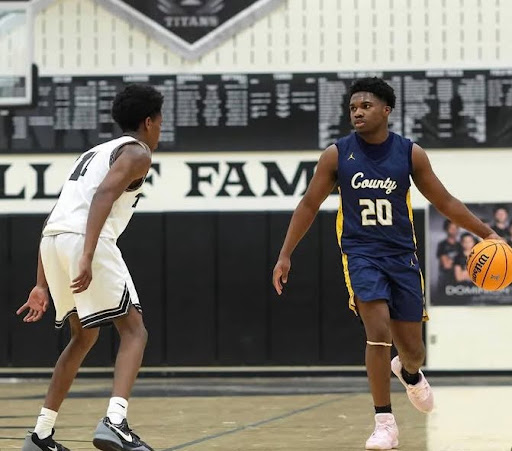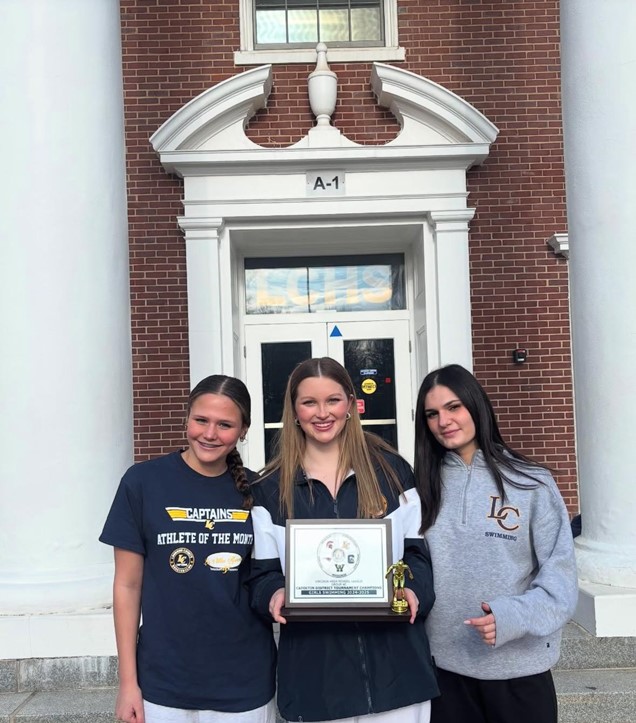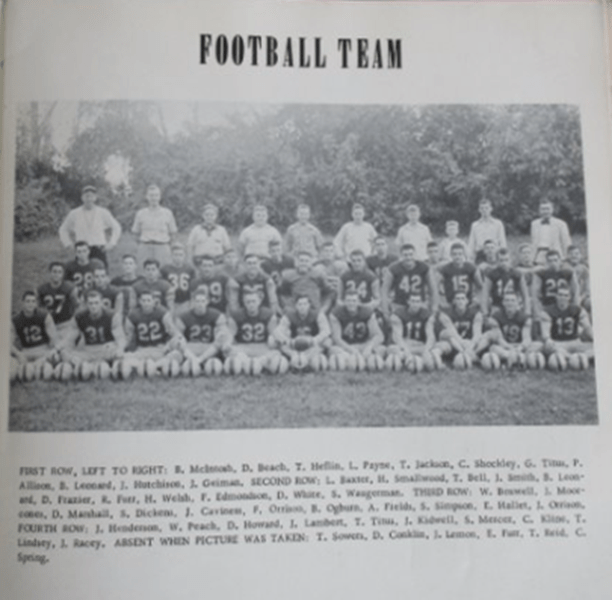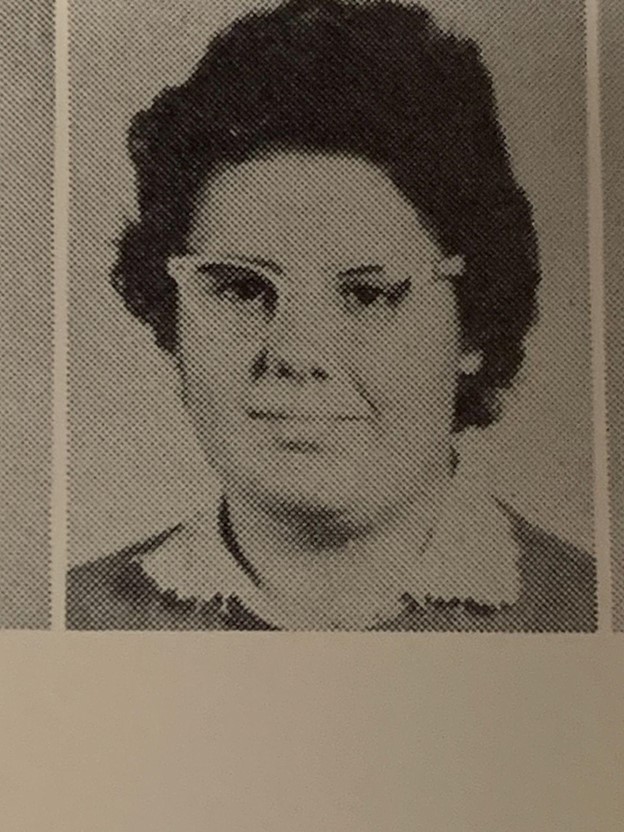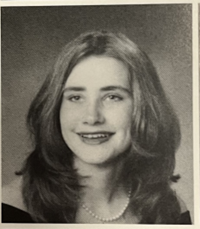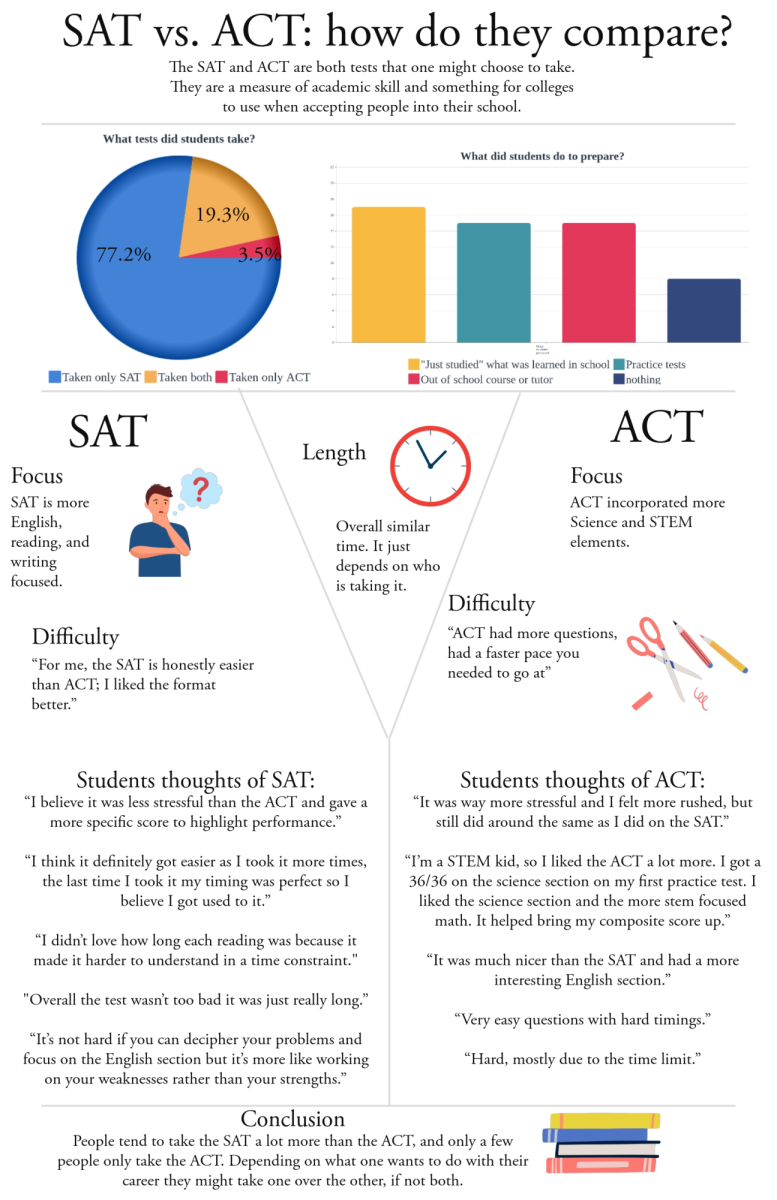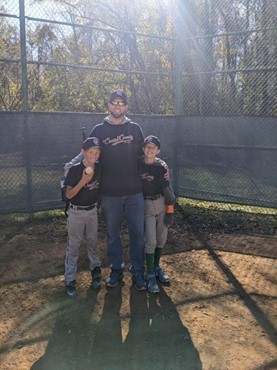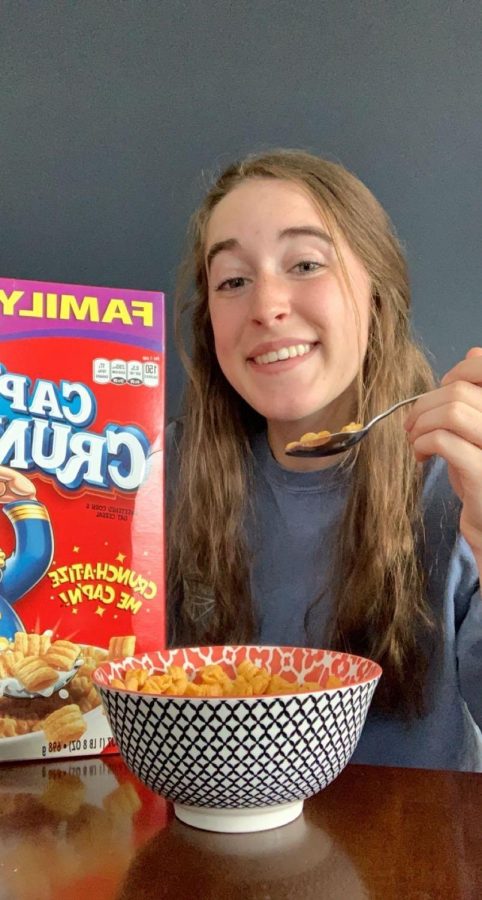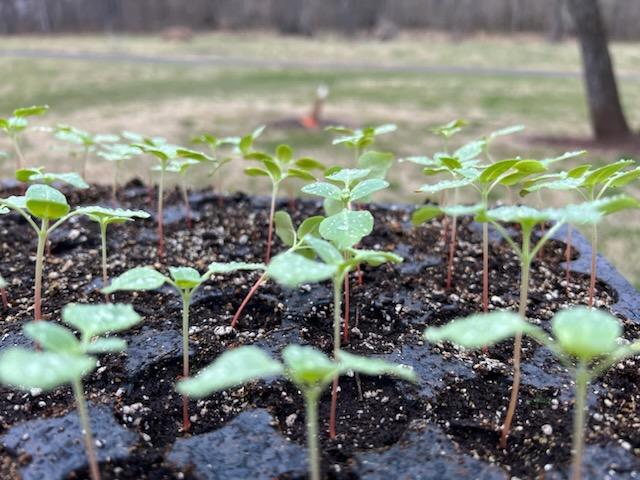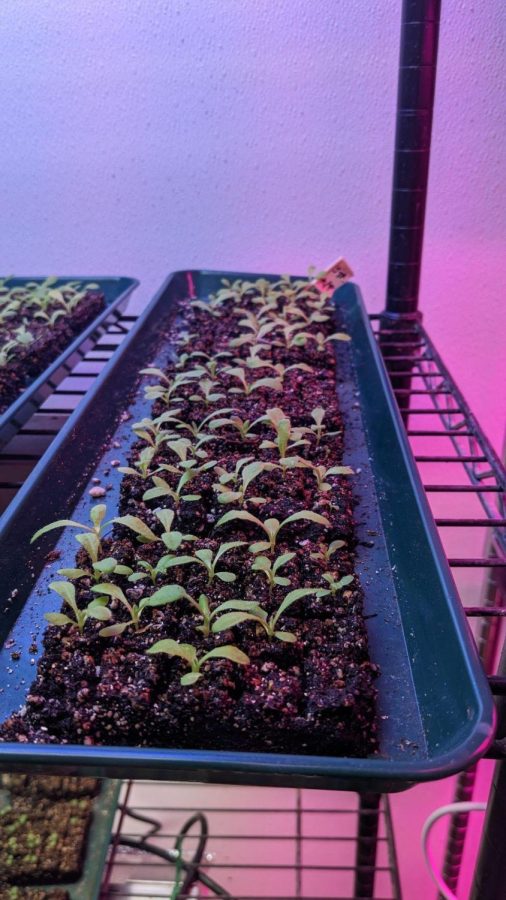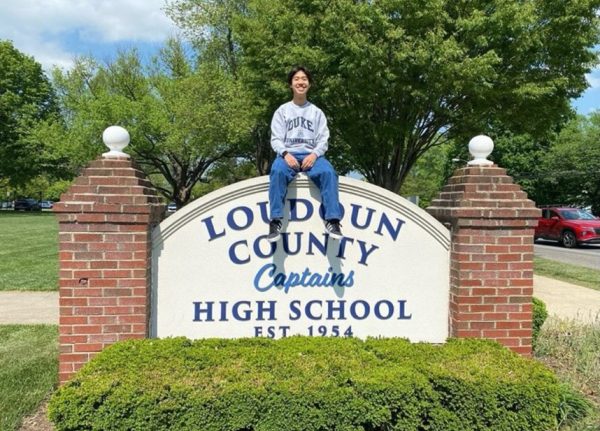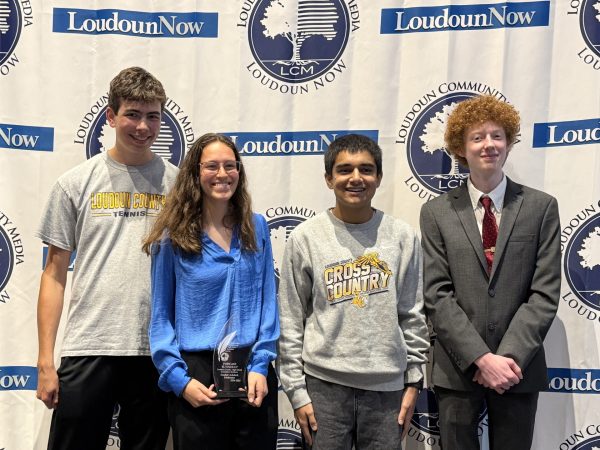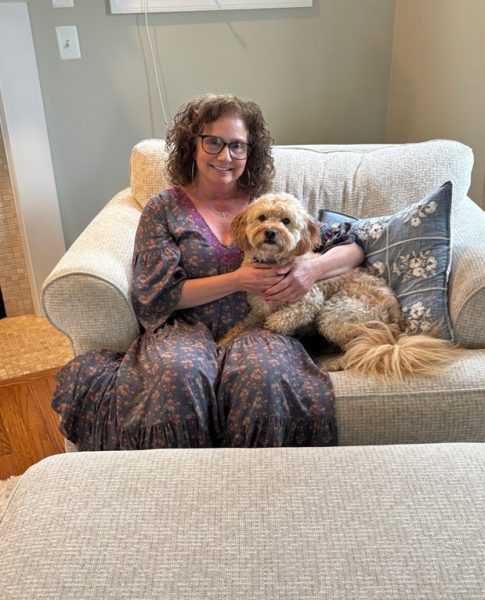Local Farmer-Florist Pioneers Sustainable Floriculture Movement
New seedlings experience their first day out in the open, hardening them to the fluctuating temperatures and varied weather conditions before they are planted.
Sage Devlin is one of a new generation of flower farmers and stylists pioneering eco-friendly floriculture and floristry. They run Far Bungalow Farms, in Leesburg, Virginia.
Although they didn’t always expect to work in floriculture, Devlin carries a legacy of eco-consciousness they share with their maternal line.
“I grew up with my mom who is very environmentally conscious,” Devlin said, about the origins of their eco-consciousness. “She has always been, and even now we even make fun of her because she’s just always saving all these ridiculous plastic containers that are just trash, but she doesn’t want to throw them away. She’s just always been like an activist in that kind of way.” Devlin’s grandmother also ran as board supervisor for Catoctin on a Green Party platform in the 1980s.
“I realized that it was the legacy once I started living here and learning about my family’s history,” Devlin said.
As well as being raised environmentally aware, growing up Devlin felt the looming threat of environmental destruction that many continue to feel today.
“It definitely was always looming, the ozone was the big thing when I was younger, we had to protect the ozone layer and emissions, and now those layers are almost not there,” Devlin said.
It was in Portland, Oregon in 2016 that they discovered their passion for floristry, yet their experiences at floral design school worried them for the state of the floristry industry.
“I went to a floral design school there that was super old school,” Devlin said, elaborating on the waste that was produced, the structured, artificial arrangement style, and thousands of imported flowers flown in from across the world on tons of jet fuel.
“I was like, this is crazy, we threw away two huge trash cans of foam every day, we’d make arrangements and then just throw it away which created so much trash,” Devlin said.
Searching for a different way to pursue what they loved, Devlin found an eco-florist, Emerald Petals, who taught them an entirely new way of floristry.
“She was no foam, American grown, all that stuff,” Devlin said. Working under her, Devlin learned a variety of techniques for eco-friendly floristry, and for the next four years they worked in a variety of shops, running a flower cart on the side, and running their own small floristry business on the side.
Growing their own artistic technique and business as a florist Devlin not only honed their skills but grew larger ambitions for the future.
“During this time I realized I just want variety,” Devlin said. “I like everything, but as a florist you can only buy so much, and as a farmer I could just grow whatever I wanted.”
Realizing they wanted to create their own farm, Devlin was knowledgeable of the serious commitment it would be, so before committing they spent a year working in exchange for food and shelter, at several flower farms, before traveling back to their family home in Leesburg and working on their family’s vegetable plot.
Coming back home, Devlin reconnected with the land and nature they knew well, from visits down to Leesburg, Virginia where their grandparents lived throughout their childhood. After being offered a property to begin their farm by their family, Devlin realized this would be the perfect place to start their own farm.
While not immediately committed to Leesburg, Devlin has felt their connection grow as they run their farm.
“The longer I stay here, the more attached I get, especially the more literal roots that I’m putting in the ground. When I started it was just like a blank field and sometimes now I just look at it and I cannot believe this, it’s getting to be so beautiful over here.”
This is the third year of Far Bungalow Farms as an official business.
Devlin has also begun taking steps for community outreach using their farmland.
“Land access is such a hard thing for farmers, like the number one biggest impediment, for young farmers, especially farmers of color and I am lucky enough that that is not a barrier for me. I’m hoping to do some projects here at Rockland that can kind of give back, because I feel like I have this privilege and I would really love to be able to share it.”
They are also committed to operating their farm sustainably, planting mainly by hand, employing sustainable soil management practices, and operating almost wholly chemically free.
Devlin also uses “integrated pest management” in which they use the introduction of certain helpful animal types, for example ladybugs, to kill animals hurtful to their farm, such as aphids. This way Devlin promotes the growth of more environmentally beneficial species as well as not having to use pesticides which can cause mass amounts of environmental harm.
Devlin also focuses on never leaving a plot of land entirely open, “I try to have something growing on the ground all the time because any bare soil means that it’s not sequestering carbon, and plants are not putting oxygen back into the atmosphere, which helps our ozone,” Devlin said.
But beyond the big ideas of sustainability, Devlin highlights how many small things they do throughout their time raising flowers that contribute to their overall sustainability. “There’s just a bajillion things,” they said.
Flower growing is a complex process with around six steps: sewing, planting, maintaining, harvesting, packing, and aggregating.
Devlin along with their partner and one employee has done this process mostly by hand in the past, growing on around three quarters of an acre, but as they continue to expand, Devlin has plans to hire two more employees to assist.
Sewing, the first step, is a time-consuming process, often each seed planted in Devlin’s specially created square cut “seed brownies” which conserve plastic waste and soil. As the seeds germinate they are eventually placed outside to “harden” against the weather before being planted.
“Then it’s kind of just a waiting game for that,” Devlin said. “Ideally you can get a succession of plants and then you kind of have waves of flowers. I’m still figuring out how to have a continuous sow stream.”
While growing flowers requires continuous care, watering through their irrigation system, hand fertilizing with the homemade “weed and old leaf fermented fertilizer,” and constantly checking the flowers for bug or fungus damage.
“Harvesting flowers is really nuanced, it’s a tricky thing to explain, but something very important. because if you’re harvesting a flower too early or too late, it’s not going to be good quality for the florist or for the customer,” Devlin said.
Depending on the type of flower and the look they take on when ready for harvest, Devlin hand cuts their flowers and stores them in an onsite coolroom for their personal use or before packing and aggregation.
In storage Devlin doesn’t use chemicals, instead keeping the flowers in fresh water for a short period before they are sold. The flowers they don’t keep for themselves, Devlin delivers to the florists that order them, in their newest addition to their farm, a delivery van.
The flowers they keep, Devlin uses in their floristry business, which services both events and individual bouquet orders.
Devlin brings their same passion for environmentalism into their floristry business.
“I don’t know how I got so intense about it because as far as a florist, I’m pretty radical,” Devlin said, elaborating that many florists are willing to make compromises on sustainability, such as importing flowers in the winter or not using pesticides but using landscape fabric.
“I’m just an all or nothing kind of person, I’m a Virgo,” Devlin said. “And I find the hypocrisy in the floral industry just so interesting. It’s just so nuanced and there’s so many twists and turns.”
Devlin recognized that even a small unsustainable aspect can have ties to larger aspects, for example the commonly used nutrition packets, which include chemical food as well as increased plastic, are only needed due to the fact imported flowers are several days old.
“Those things that we, customers and even florists, take for granted have these deep rooted, systemic reasons for them,” Devlin said. “It’s such a systemic thing that I think a lot of people don’t even think about because: flowers are great, flowers are supposed to make you feel good, but we don’t account for where those flowers came from.”
In their floristry shop Devlin rarely uses single use plastics, often reusing packaging from other aspects of their business when plastic is required. They have also begun to bring back vintage flower design techniques that incorporated multiple use materials, such as metal pins called “frogs” that hold in place arrangements. They pair this with nouveau techniques such as chicken wire foundation for larger flower installations.
Devlin also focuses on the importance of seasonality in the floristry industry.
“Embrace seasonality. When winter comes in a lot of places, things go dormant and it’s okay that there’s no flowers at that time,” Devlin said.
Instead, Devlin suggests, use evergreens, pods, grasses, dried flowers, and fruit in bouquets and indoor displays.
“Spring is so abundant and beautiful when it comes, and it’s like you can’t fully experience happiness if you’ve never been sad. So it would be helpful if we could shift our mindset from ‘everything now’ to seasonal and cyclical. ”
To Devlin, integration of sustainability into the floristry industry isn’t just a matter of environmentalism and protection of the planet, it’s also the very existence of the floristry industry itself.
“If people don’t really make a shift, the business will become irrelevant. Sustainability is trending right now, and that translates to the look of flowers. Millennials don’t want to buy that old school look anymore, neither do Gen-Z. More importantly, our industry is directly connected to the earth and its health. It doesn’t matter how you’re farming or how you’re growing flowers or how you’re doing floristry, if we don’t have fertile soils, if we have a forest fire every other year, wiping out our land, there just won’t be flowers.”
While sustainability is in vogue, and important in a wider context, Devlin also understands the larger costs of sustainably grown farming, and the extra work it requires for florists to shop locally.
To mitigate these negative aspects, Devlin has begun the Rock and River Flower Collective. Consisting of them and four other growers, the farmers work together, combining stock to make it easier for florists to shop a wider range of local flowers in one place, and lowering costs. They have also begun an online ordering service, which enables florists to buy and get delivery all from the comfort of the florist’s own business.
Still, Devlin acknowledges, their prices will always have to be higher, both due to their small business size and environmentally sustainable practices, but also due to them paying their workers a living wage, rather than using highly exploitative labor practices found in the production of much of the internationally imported flowers common in the US.
“I can’t compete with the prices of the wholesalers, but I can say these flowers are fresher and they’re different and people are starting to want them,” Devlin said.
While doing work in their own floristry and floriculture practices, Devlin also advocates and educates on the importance of buying sustainable flowers and practicing sustainable floriculture.
Talking at schools, garden clubs, and featuring in newspapers, Devlin takes any opportunity to spread the word on sustainable floriculture. They also run a Community Supported Agriculture Group, which for a flat rate guarantees flower deliveries throughout the growing season and works to educate its members on seasonality.
“Unsustainable practices are so enmeshed [in the floriculture and floristry industry] and I find that to be really fascinating, that’s kind of my main mission, to educate people on that,” Devlin said.
While Devlin has devoted their life to sustainability in agriculture, and encourages everyone to work to be more sustainable in their own lives and educate themselves on the exploitative nature of many processes behind everyday products, they believe finding your own purpose and pursuing it is the most effective way to make positive change.
“There aren’t any rules to how you live your life, you really can do it how you want and make your life work for you, based on your own values and your own personality,” Devlin said, “I think that’s like the biggest thing I’ve learned in life.”
Your donation will support the student journalists of Loudoun County High School. Your contribution will allow us to purchase equipment and continue to print our issues for the students at our school.
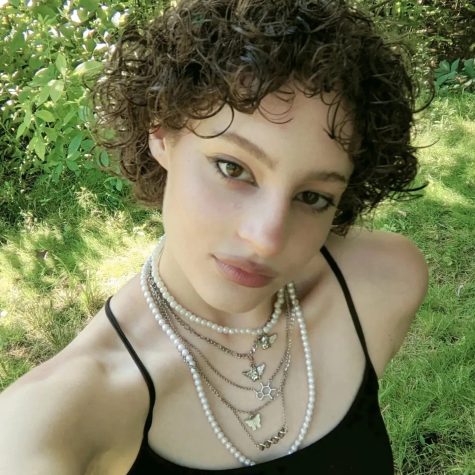
Editor-in-chief Liberty Harrison is a senior at LCHS. This is her third year working on the newspaper staff. She would like to one day be an investigative...


